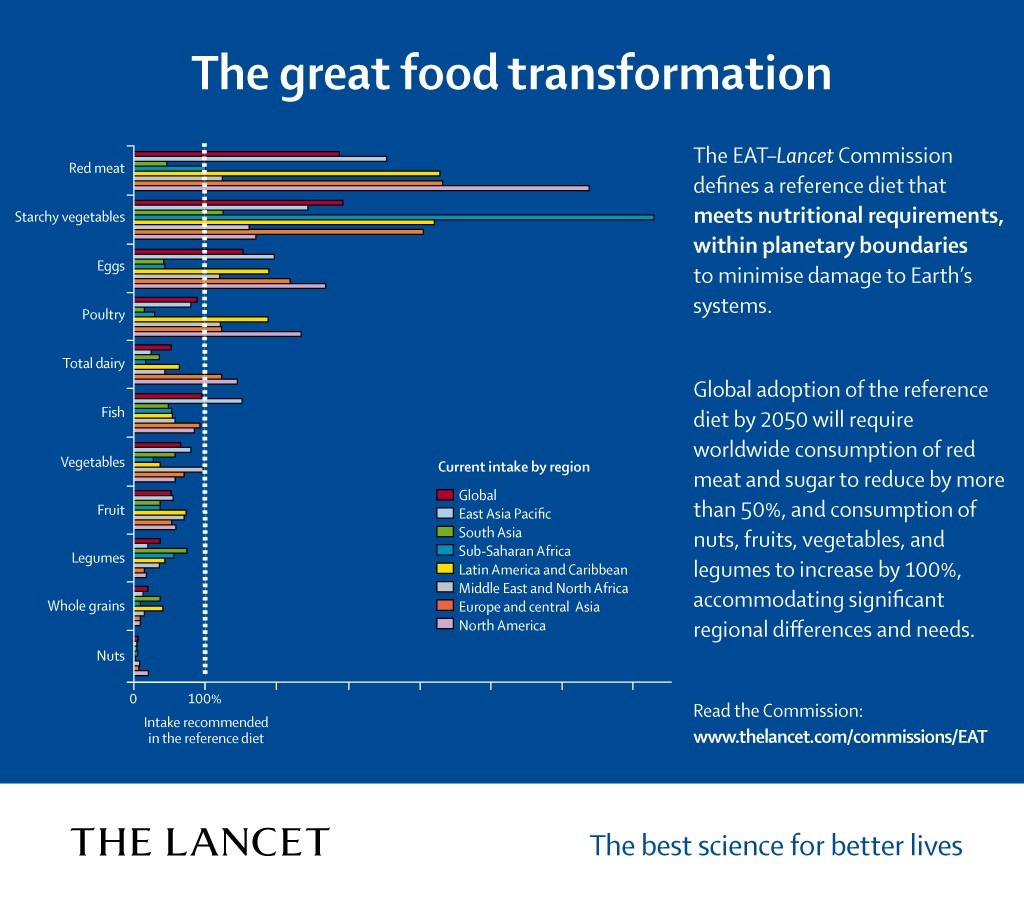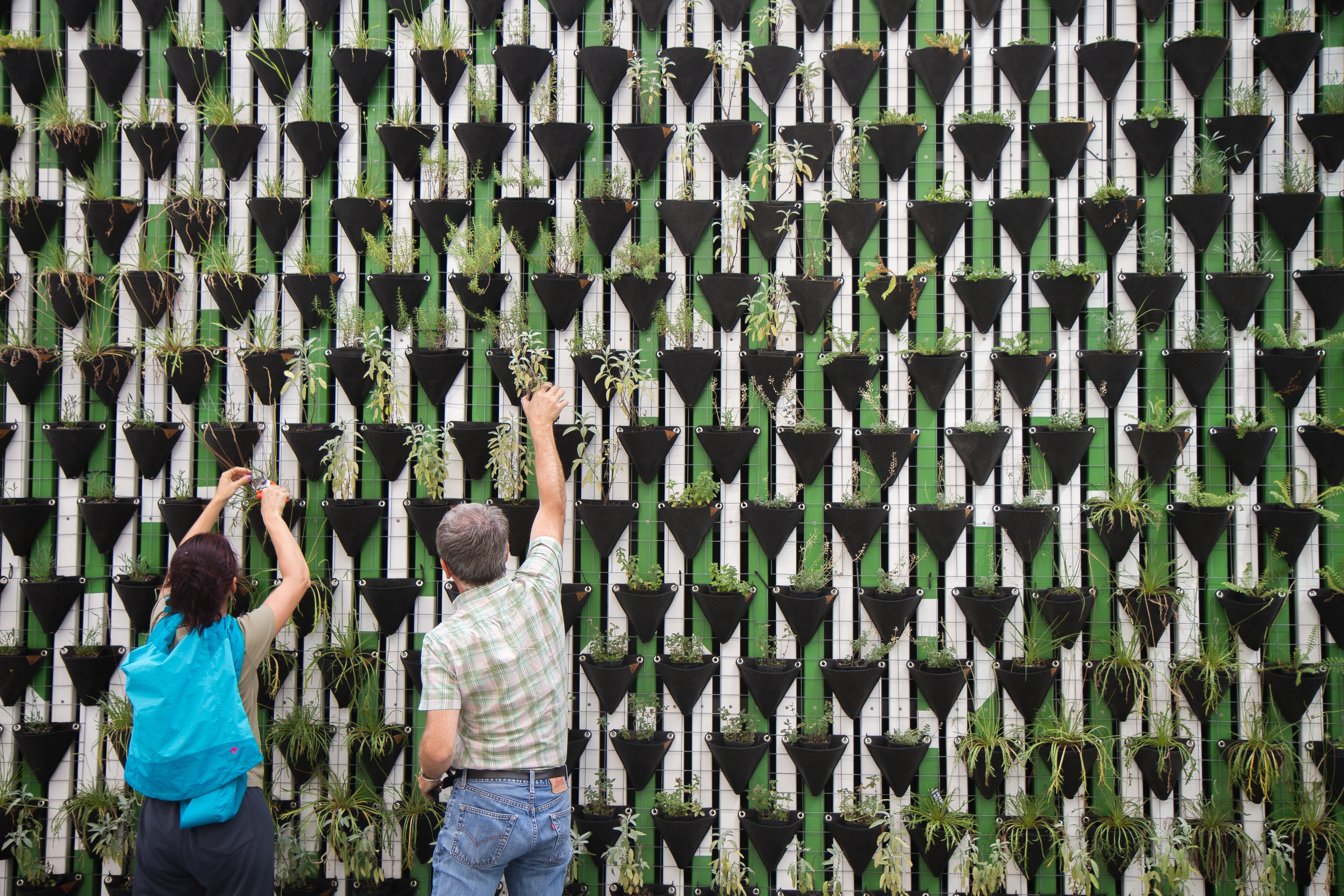We’ve broken down the 47-page report so that you don’t have to.
In this three-part series we’ll be exploring sustainability in business. This first blog of the series focuses on the newly released EAT-LANCET report, a global commentary from the scientific community on how to support the environment through food choices, food production and food waste.
For the first time in 200,000 years we can no longer feed the world and keep our planet’s resources in balance. What we’re eating as a global population isn’t good for the environment but we haven’t known until now what we can eat to save the planet. And it’s not just that. There’s global waste and unsustainable food systems. A new hefty 47-page report called EAT-Lancet came out last week that took 37 scientists from 16 countries two years to write on feeding the world, supporting the environment and caring for our global health. That’s a big task and a lot of brain power.
Can we eat in a way that works for our planet as well as our bodies? It’s the carnivores which may have the most beef with the new diet recommendations. In a nutshell the new ‘planetary’ diet focuses on reducing red meat (to about 14g a day, that’s one rasher of bacon), and increasing veg, nuts, fruit, and beans. But the report doesn’t just focus on what we choose to put on our own plates. It also calls for action from communities, businesses and governments too.

Meat – the single greatest contributor to climate change
The report projected that if we continue business-as-usual the level of food production could increase greenhouse-gas emissions, land use and water use by 50-90% from 2010 to 2050 if we don’t make any changes.
Though the report didn’t investigate new innovative meat alternatives due to a lack of data it did give them a nod, mentioning insects, algae, microbes and laboratory-cultured meats. They may not sound too appetizing now but once industry gets their creative hands on them we’re sure it’ll be a different story. You only need to look at the hype around the plant-based ‘bleeding’ burger from Beyond Burgers as an example.
These scientists have let us know that unless there’s a substantial shift in the way we globally eat there’s no way that we’re going to meet the Paris Agreement on Climate Change. Some businesses have already been quick off the mark cashing in on public concern for the environment with an astronomical rise in vegan products hitting the market in 2018.

Global targets but nothing specific yet for industry
In the report they’ve created a ‘planetary boundaries framework’. These are global ranges of the total acceptable levels of cropland use, biodiversity loss, water use and green-house emissions. They’ve set the tone for what needs to be done overall, as a planet. The move is now to policy makers and businesses to start translating these targets for different sectors and regions, a hefty gig. This report is really the first step in connecting the dots of a global initiative into specific on-the-ground action.

Industry has lost its way
It would be more than fair enough to say that commercial and political interests have far too much influence in our current economy. The cost? Possibly human health and mother nature. No clear environmental targets exist for businesses making it really tough for those that do want to play their part. The report did touch on some ‘blue-sky’ ideas like allocating funds to sustainable and healthy products, carbon and sugar taxes, marketing controls and consumer reward schemes to guide choice. We’ve seen a suggestion of these strategies already like the UK sugar tax but this report signals that this is likely to be just the beginning.
Halving food waste can reduce green-house admissions by a further 5%. Now that may not sound like a lot but remember we’re talking about the entire planet here. In western countries the report suggests reducing portion sizes, choice, packaging and introducing new innovative packaging that preserves perishable foods.

Maybe our connection with nature holds the answer
What we give back to the planet, ultimately we’ll get back in return. This report is a beacon shedding light on how we need to move forward for the sake of generations to come. It’s a matter of when. Some businesses may see the changes laid out in this report as a barrier, others will see this as an opportunity. Now are you in, or are you out?
How can you be more sustainable yet still make money as a food business? Find out in part two of our three-part series on sustainability in food businesses.
Fancy reading the whole paper yourself? Access it here.







